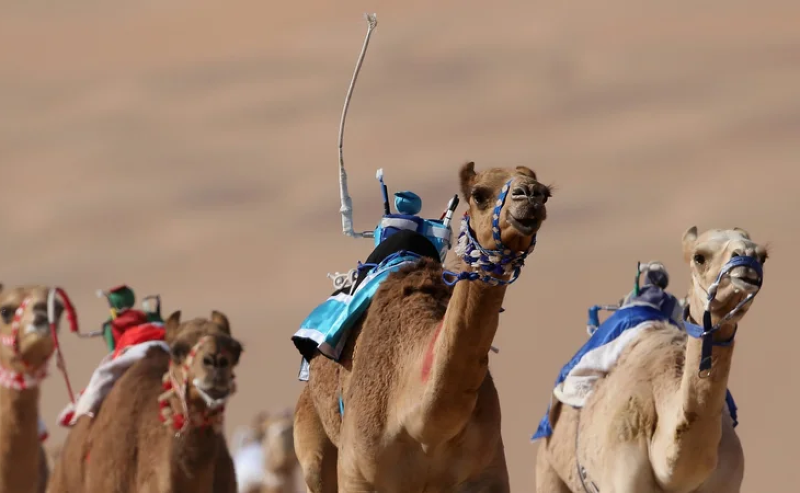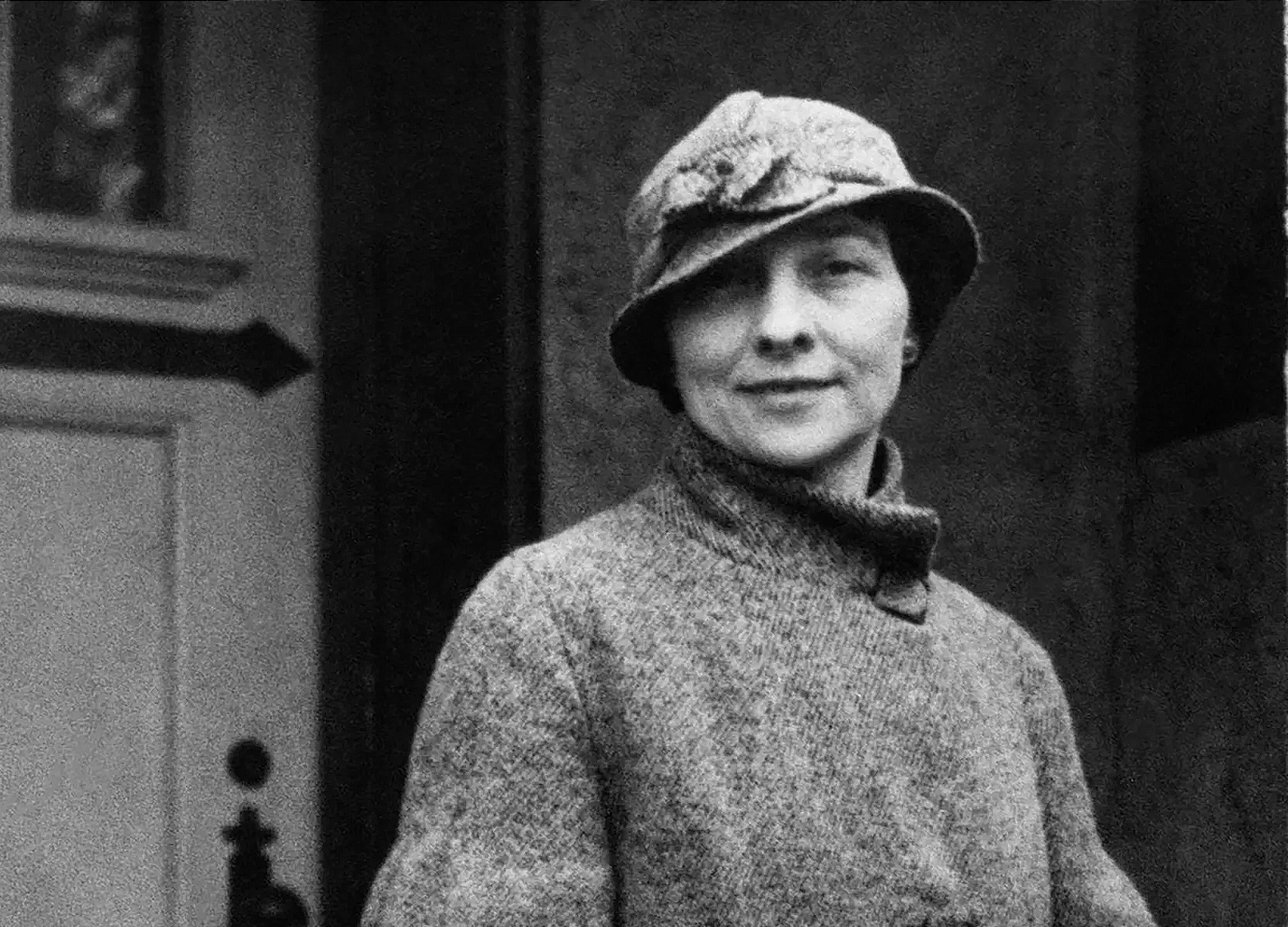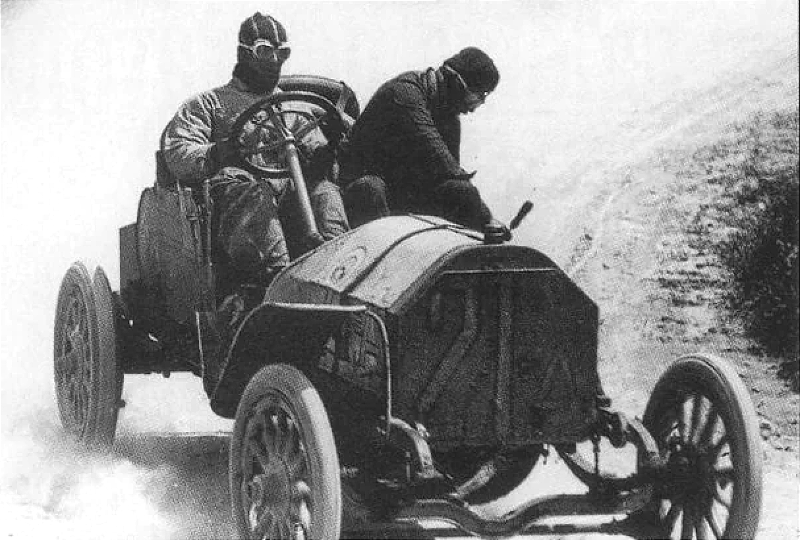He changed life in the Gulf by inventing a camel-racing robot

Before he found himself on the Al-Shahaniya racetrack on the outskirts of Doha, Esan Maruff had never seen a camel race. It was May 2005, and Maruff’s robotics team was on-site for a Qatar-funded research project — to make human jockeys obsolete by building a camel-racing robot. Looking back, he still seems shocked that his new job at a robotics lab dropped him into the middle of one of the region’s most persistent human rights violations: child trafficking. Children have been groomed to ride camels in the Gulf States since the 1970s, in an endless pursuit for lighter-weight jockeys and faster race times. As camel racing evolved into a professional sport in the 1980s and ’90s, the demand for new jockeys bred a network of traffickers who bought young boys from debt-ridden families in Pakistan, Bangladesh, and Sudan to sell in the Gulf. Racing injuries, physical abuse, inhumane living conditions, and deaths were all documented by human rights organizations in jockey camps. (via Rest of World)
She started out researching Shakespeare and helped invent modern cryptography

Elizebeth Friedman graduated from Hillsdale College in Michigan with a major in English literature. In 1916, while working at the Newberry Research Library in Chicago, she was recruited by George Fabyan to work on his 500-acre estate at Riverbank, his private "think tank." Fabyan, a wealthy textile merchant, told Friedman she would assist in the attempt to prove that Sir Francis Bacon had authored Shakespeare's plays and sonnets using a cipher contained within. Up until the creation of the Army's Cipher Bureau, Riverbank was the only facility capable of exploiting and solving enciphered messages. Her career embraces cryptology against international smuggling and drug running in various parts of the world and she later became a consultant to and created communications security systems for the International Monetary Fund. (via the NSA)
There are only fifty people in the world known to have this rare blood type

Blood transfusions have transformed modern medicine. If we are ever unlucky enough to be injured or need serious surgery, blood that has been donated by others can be life-saving. But not everyone is able to benefit from this remarkable procedure. People with rare blood types struggle to find donated blood that will match their own. One of the rarest – the Rh null blood type – is found in just 50 known people in the world. Should they ever be in an accident that needs a transfusion, their chances of getting one are slim. Those with Rh null are instead encouraged to freeze their own blood for long-term storage. But, despite its rarity, this blood type is also highly prized for other reasons. Within the medical and research community it is sometimes referred to as "golden blood" due to how it can be used. It may also help to create universal blood transfusions as scientists search for ways of overcoming immunity issues. (via the BBC)
Hi everyone! Mathew Ingram here. I am able to continue writing this newsletter in part because of your financial help and support, which you can do either through my Patreon or by upgrading your subscription to a monthly contribution. I enjoy gathering all of these links and sharing them with you, but it does take time, and your support makes it possible for me to do that. I also write a weekly newsletter of technology analysis called The Torment Nexus.
The deadliest sniper in World War I was an Ojibwa man with 378 confirmed kills

Francis Pegahmagabow was born in 1889 on the Parry Island Indian Reserve (now the Wasauksing First Nation), an Ojibwa community near Parry Sound, Ontario. Young Francis spends his childhood steeped in the customs of the Anishnaabe. Pegahmagabow leaves school at the age of 12 and begins working at lumber camps and fishing stations, eventually working as a marine fireman. When he's 25, war is declared in Europe. He enlists in the Canadian Expeditionary Force on August 13, 1914. After spending so much of his youth hunting, Pegahmagabow turns out to be a uniquely skilled sniper. He sneaks into No Man's Land under darkness, buries himself in cover and waits patiently until a German helmet fills his scope. It's this mix of patience and unerring aim that makes him the deadliest sniper on either side of the war, with 378 confirmed kills. (via the CBC)
The oldest road race took place in the mountains of Sicily in the early 1900s

The Targa Florio was a public road endurance automobile race held in the mountains of Sicily near the island's capital of Palermo. Founded in 1906, it was the oldest sports car racing event. While the first races consisted of a whole tour of the island, the track length in the race's last decades was limited to the 72 km (45 mi) of the Circuito Piccolo delle Madonie, which was lapped 11 times. After 1973, it was a national sports car event until it was discontinued in 1977 due to safety concerns. The race was created in 1906 by the wealthy pioneer race driver and automobile enthusiast, Vincenzo Florio. One of the toughest competitions in Europe, the first Targa Florio covered 3 laps of a 92 mile (148 km) circuit, totaling 276 miles (444 km), traversing through treacherous mountain roads, with around 2,000 corners per lap and over 3,600 feet (1,100 m) of elevation change. Alessandro Cagno won the inaugural 1906 race in nine hours, averaging 30 miles per hour (50 km/h). (via Wikipedia)
He watched on a webcam as a bear took off with his brand new chainsaw

Acknowledgements: I find a lot of these links myself, but I also get some from other newsletters that I rely on as "serendipity engines," such as The Morning News from Rosecrans Baldwin and Andrew Womack, Jodi Ettenberg's Curious About Everything, Dan Lewis's Now I Know, Robert Cottrell and Caroline Crampton's The Browser, Clive Thompson's Linkfest, Noah Brier and Colin Nagy's Why Is This Interesting, Maria Popova's The Marginalian, Sheehan Quirke AKA The Cultural Tutor, the Smithsonian magazine, and JSTOR Daily. If you come across something interesting that you think should be included here, please feel free to email me at mathew @ mathewingram dot com



